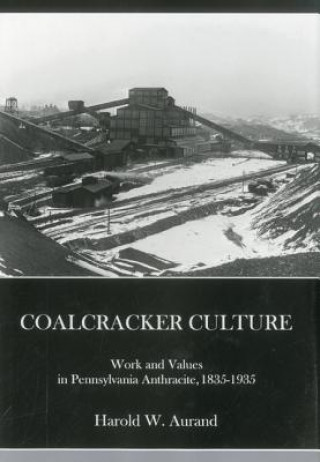
Kód: 04821339
Coal Cracker Culture
Autor Harold W. Aurand
Coalcracker Culture traces the evolution of a distinct regional culture in the anthracite coal fields of Pennsylvania. The study begins by establishing the region's industrial and social contexts. With a handful of companies contr ... celý popis
- Jazyk:
 Angličtina
Angličtina - Väzba: Pevná
- Počet strán: 158
Nakladateľ: Associated University Presses, 2003
- Viac informácií o knihe

129.63 €
Dostupnosť:
50 % šanca Máme informáciu, že by titul mohol byť dostupný. Na základe vašej objednávky sa ho pokúsime do 6 týždňov zabezpečiť.
Máme informáciu, že by titul mohol byť dostupný. Na základe vašej objednávky sa ho pokúsime do 6 týždňov zabezpečiť.Prehľadáme celý svet
Mohlo by sa vám tiež páčiť
-

Cultural Sociology of the Middle East, Asia, and Africa
606.38 € -10 % -

Foreign News
47.46 € -

Around Quitting Time
37.68 € -

Denkwürdigkeiten eines englischen Edelmannes aus dem großen Kriege
19.76 € -

Short Course Series - Englisch im Beruf - Business Skills - A2
26.56 € -

Clarinet Goes All Time Standards, Klarinette und Klavier ad lib., m. Audio-CD
26.97 € -

Berufsberatung von Jugendlichen
71.45 €
Darčekový poukaz: Radosť zaručená
- Darujte poukaz v ľubovoľnej hodnote, a my sa postaráme o zvyšok.
- Poukaz sa vzťahuje na všetky produkty v našej ponuke.
- Elektronický poukaz si vytlačíte z e-mailu a môžete ho ihneď darovať.
- Platnosť poukazu je 12 mesiacov od dátumu vystavenia.
Informovať o naskladnení knihy
Zadajte do formulára e-mailovú adresu a akonáhle knihu naskladníme, zašleme vám o tom správu. Postrážime všetko za vás.
Viac informácií o knihe Coal Cracker Culture
Nákupom získate 319 bodov
 Anotácia knihy
Anotácia knihy
Coalcracker Culture traces the evolution of a distinct regional culture in the anthracite coal fields of Pennsylvania. The study begins by establishing the region's industrial and social contexts. With a handful of companies controlling over ninety percent of total production, the anthracite industry was one of the most formidable cartels in American history. Overcapitalization, first in the form of excess plant and, later, as a large bonded debt, forced the cartel to maintain low labor costs and high profit margins. It secured the surplus of workers required by its labor policy by recruiting immigrants; as many as twenty-six languages were spoken in the area at one time. As a result, coal region society fractured as each ethnic group strove to preserve its identity and project its influence in the larger community. Recognizing that work provided a diverse population with its only shared set of experiences, Aurand traces the development of anthracite deep mining. He discovers that despite technological innovations, the anthracite miner remained a tool user and retained control of his behavior on the job. But the consequences of mining were brutal; in a very real sense the miner traded his life for a job. The industry's labor policy funded a precarious standard of living. Aurand then turns his attention to the values fostered by the work of deep mining anthracite. He finds that miners valued the sense of freedom and accomplishment derived from their job. But the price of occupational freedom, physical destruction either quickly by accident or through the slow suffocation of black lung, was steep. Mine workers valued physical toughness for it alone permitted them to cope with their strenuous and dangerous work. The knowledge that they traded their lives for a job generated an overarching fear of losing their income. The prospect of a sudden loss of income encouraged the development of a communitywide support network that was governed by the principle of reciprocity. Focused upon their individual needs, however, they tolerated cheating within the reciprocal relationship. Exploited, they developed a mistrust of others. They internalized numerous allegations of their inferiority while compensating for it by celebrating the overly macho male who never tolerated an insult. Today that culture is widely celebrated. A number of sites about "da region"-as the anthracite coal fields are fondly called-can be found on the World Wide Web. Local historical societies and museums are being formed in unprecedented numbers. Books and poetry expound upon the region and its culture. The celebration, however, seems to be a nostalgic attempt to hold on to what is quickly passing, for the very basis of that culture-deep mining-has ceased to exist for all practical purposes.
 Parametre knihy
Parametre knihy
Zaradenie knihy Knihy po anglicky Economics, finance, business & management Industry & industrial studies Primary industries
129.63 €
- Celý názov: Coal Cracker Culture
- Podnázov: Work and Values in Pennsylvania Anthracite, 1835-1935
- Autor: Harold W. Aurand
- Jazyk:
 Angličtina
Angličtina - Väzba: Pevná
- Počet strán: 158
- EAN: 9781575910642
- ISBN: 1575910640
- ID: 04821339
- Nakladateľ: Associated University Presses
- Hmotnosť: 425 g
- Rozmery: 234 × 157 × 15 mm
- Dátum vydania: 30. April 2003
Obľúbené z iného súdka
-

Extra Virginity
30.88 € -2 % -

Carbon Farming Solution
61.88 € -18 % -

Extra Virginity
18.22 € -1 % -

Lean Farm
29.44 € -19 % -
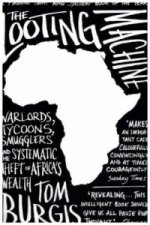
Looting Machine
9.46 € -24 % -

Enriching the Earth
44.78 € -

Soil Microbiology, Ecology and Biochemistry
104.71 € -

Minerals for the Genetic Code
25.84 € -2 % -

Farm Business Management
351.94 € -
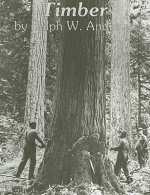
Timber: Loggers Challenge the Great Northwest Forests
14.10 € -15 % -

Elements of Petroleum Geology
111.10 € -

Nature's Perfect Food
43.65 € -

Market-Based Fisheries Management
71.25 € -

Cartographic Science
107.90 € -

Extra Virginity
16.67 € -23 % -

Feeding the World
56.62 € -
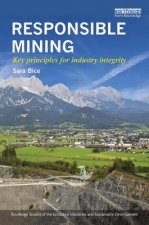
Responsible Mining
69.29 € -

Dictionary of Agriculture and Land Management
25.73 € -

Fundamentals of Horticulture
73 € -
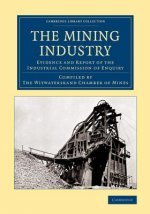
Mining Industry
99.15 € -4 % -

Modern Management in the Global Mining Industry
72.17 € -
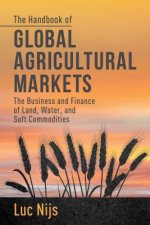
Handbook of Global Agricultural Markets
140.34 € -

Food and Agricultural Tourism
69.08 € -

Unmanned Aerial Systems in Agriculture
220.96 € -
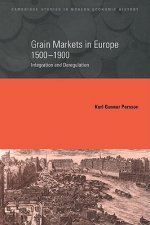
Grain Markets in Europe, 1500-1900
53.33 € -
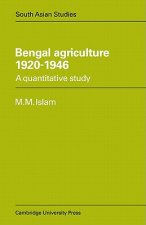
Bengal Agriculture 1920-1946
53.33 € -

Fish versus Power
53.33 € -

Waste
28.72 € -9 % -

Overfishing
17.60 € -4 % -

CABI Encyclopedia of Forest Trees
451.52 € -

Handbook of Liquefied Natural Gas
139.62 € -

Handbook of Natural Gas Transmission and Processing
191.93 € -

Tomorrow's Table
24.29 € -
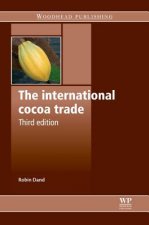
International Cocoa Trade
229.20 € -

GIS Fundamentals
123.14 € -

Minerals, Collecting, and Value across the US-Mexico Border
37.78 € -

Agri 4.0 and the Future of Cyber-Physical Agricultural Systems
208.50 € -

Precision Agriculture
147.86 € -

Cherries
293.35 € -

Biochar Production for Green Economy
247.32 € -

Poplars and Willows
390.25 € -

Hungry Capital
16.67 € -4 % -

Commodity Derivatives
231.78 € -

Stone Matrix Asphalt
107.90 € -

Tropical Babylons
62.49 € -

Forest Fungi
192.96 € -4 % -

Anthropology of Food - The Social Dynamics of Food Security
48.08 € -
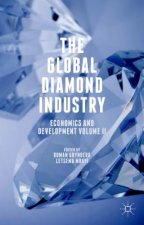
Global Diamond Industry
140.34 € -

Agricultural Economics & Agribusiness 8e (WSE)
342.16 €
Osobný odber Bratislava a 2642 dalších
Copyright ©2008-24 najlacnejsie-knihy.sk Všetky práva vyhradenéSúkromieCookies


 21 miliónov titulov
21 miliónov titulov Vrátenie do mesiaca
Vrátenie do mesiaca 02/210 210 99 (8-15.30h)
02/210 210 99 (8-15.30h)